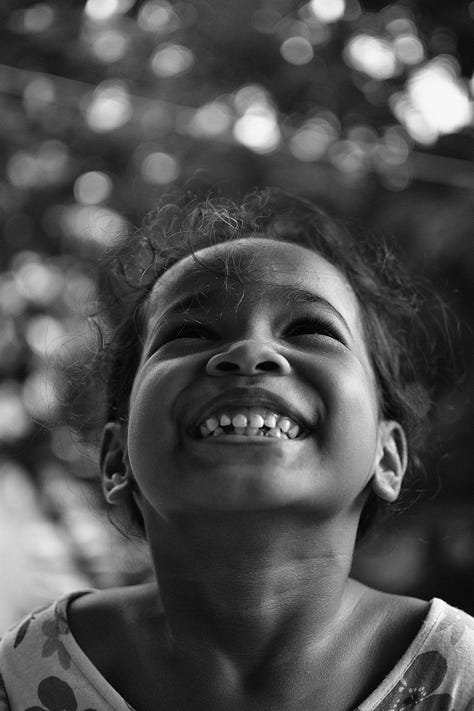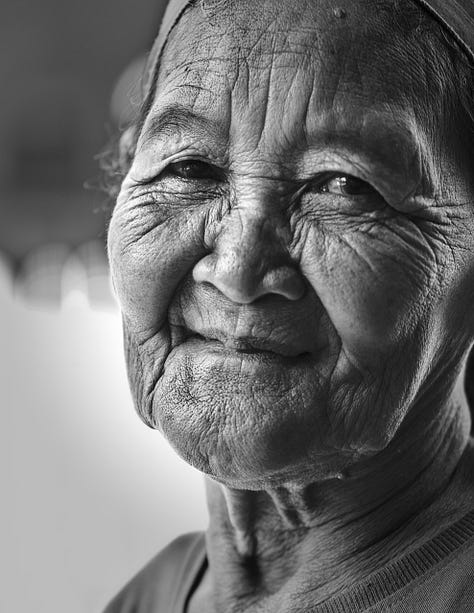


In my upcoming novel, Fault Lines, family patriarch, Jacob Barlowe, asks his daughter, Vicky, “What is happiness?” In the context of the story, the question is rhetorical. Vicky is unable to answer even if she wanted to. She, herself, doesn’t know the answer.
In fact, none of the characters in the novel are likely to hold the answer to that particular question, each one too severely damaged by their own past trauma, often self-inflicted, to tackle such introspection. In any event, Vicky’s answer would have no bearing on her father’s happiness: her own, like the other characters’, can only be understood based on her current position in time. But that got me thinking: can any of us, definitively, say what happiness truly is? Or is happiness too constantly evolving, too tied to time to be fully realized?
The Life Cycle of Happiness
Childhood
For the youngest member of the Barlowe family, Nate Watanabe, happiness is far simpler than the complicated world of adulthood: a handful of pumpkin seeds, the crook of his grandfather’s arm, a seat next to his favorite aunt with his parents close at hand.
I suspect, for many of us, our childhood definition of happiness was likely something similar: little moments which shape and define our place in the world. Like Nate, one of my happiest places was in the crook of my grandfather’s arm where I would burrow whenever a bee would venture too close to the backgammon games we played on the front porch. I was also a sucker for sandy hot dogs on the beach with my father and the nights when breakfast would show up on my dinner plate. There wasn’t much more I needed back then to put a smile on my face, although a bag of fudge from The Candy Kitchen wasn’t a bad addition. I didn’t know much about the world when I was younger, but I knew where I fit into it, and that was enough for me.
Young Adult
As we get older, these simple joys feel too fleeting to hold meaning. We begin thinking of happiness as something larger, more all-encompassing. Even our language shifts: no longer do we refer to those childhood moments as bursts of happiness. Instead we refer to them as “simple joys” as I’ve done here. To be true “happiness,” there must be substance. Permanence. An altered state of being. No longer focused on fitting in, we turn our attention instead to breaking out: breaking out of the molds in which others have tried to shape us, breaking out of our comfort zone, breaking out of our family which in young adulthood can feel more constricting than comforting.
For Nate’s aunt, Evelyn, happiness is found in forging her own path, leaving behind her family home and the feeling of being unwanted and unloved that she always felt inside it. For Nate’s mother, Vicky, happiness is breaking through the glass ceiling, becoming an economic powerhouse in the male-dominated tech industry. For a while, it feels good, the freedom and independence, the sensation of knowing you don’t need anyone else to succeed.
It was during my own young adulthood that I found happiness on the other side of the world, leaving behind my home and family to experience life across the globe. I loved my time living in South Korea—it has shaped literally every part of my life that followed. But I don’t know that I would have the courage, or frankly the interest, in repeating that experience now. The liberation was lovely, but also lonely; freed from the bonds of home and family, I was also freed from its comforts. That kind of happiness carries a heavy price. It did for me just as it does for my characters. So as I’ve grown older, my idea of happiness has shifted.
Middle Age and Older
The older I’ve grown, the more I want to return to simple joys: a comfy sofa after a long day at work, dining with my family, taking short vacations with those I love. Like me, Fault Lines family elders Jacob and Julia have reached this stage in life, the stage when they want, more than anything, to belong fully to each other.
But transitions, no matter how desirable, carry their own costs. My happiness, as explored in “Dare to Fail,” came at the cost of many failures: some small, many large. I’ve been fortunate enough to push through those failures and emerge on the other side better, stronger, and yes, happier. For Jacob and Julia, however, the cost of the happiness they sought as young adults was never paid. When the bill comes due, it comes bearing interest. And their family will be left paying the price.
However broken they are, each of the characters in Fault Lines carries a hope for happiness that I find inspiring. Will any of them reach their goals? I can’t wait to show you when Fault Lines gets published (although wait I must because it remains a work-in-progress). In the meantime, I’d love to hear how your definition of happiness has evolved over time. Drop a comment below to share your own journey toward joy.
P.S. I still have no idea what happiness is. But I do know that I feel pretty darn happy typing this up on my comfy sofa after a long day, so I think I might be on the right track.




